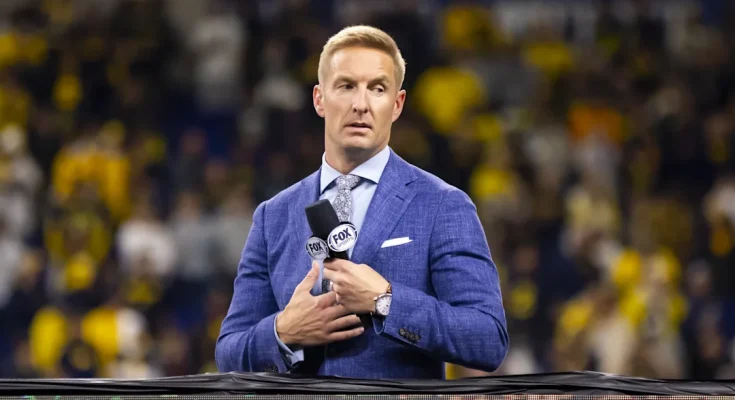The 2025 College Football Playoff National Championship game between Ohio State and Notre Dame got underway on Monday, Jan. 20, taking place 51 days after the latest college football season ended for teams that did not qualify for a bowl game, and weeks after the season ended for even teams that did play in bowl games.
With the new 12-team CFP format, the national championship game has been pushed back to the second half of January, rivaling the NFL playoffs. Former Colorado football quarterback and college football analyst Joel Klatt is not a fan of this format, believing it takes away from the attention the sport should be getting.
“This is supposed to be the pinnacle of our sport,” Klatt wrote on X. “The destination for every player, coach, and fan…yet somebody decided that playing the National Championship on a Monday night deep into the NFL playoffs was a good idea…the mismanagement of CFB has been egregious.”
Instead, Klatt believes the game should be played on New Year’s Day.
“We should be playing the National Championship on Jan. 1,” Klatt wrote in a separate post. “Every year…OUR DAY…make it special.”
Though the national championship game has been played after Jan. 1 even before the 12-team format was instated, the current schedule runs quite long into the January.
By the time the game is played, many players from other teams have already entered the transfer portal and departed for other schools, and others have declared for the NFL Draft, moving on from the past season. For the two teams that make the title game, their season extends multiple weeks longer.
Along with the peculiarity of the schedule for the teams remaining in contention, the national championship can be overshadowed by the NFL playoffs, which just finished the divisional round and saw outstanding viewership.
The officials that control the CFP met for their annual meeting on Sunday, but did not make any changes to the current format. The committee has not ruled out “tweaking” the current format for 2025, per ESPN, but commissioners would have to unanimously agree on any and all possible changes.



